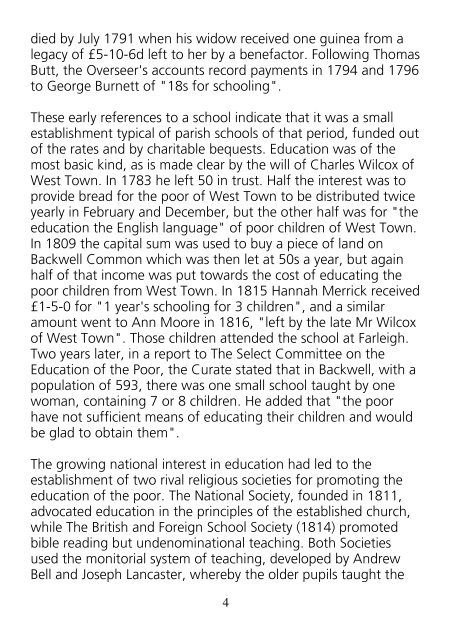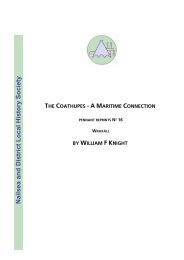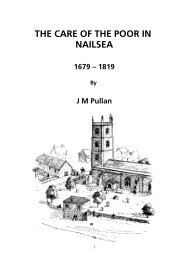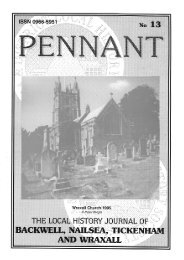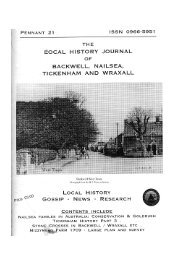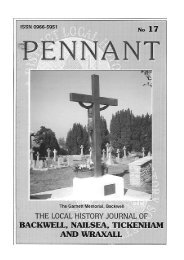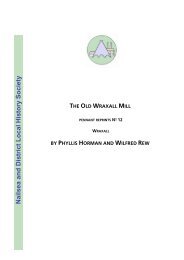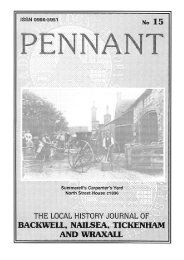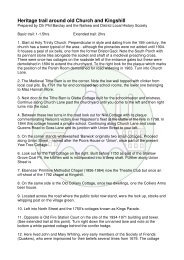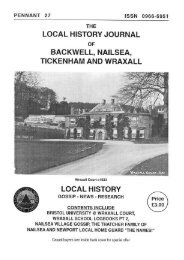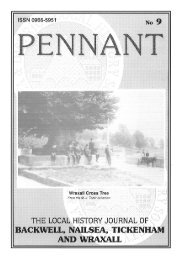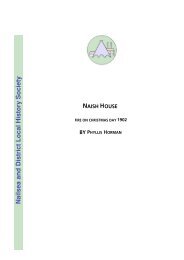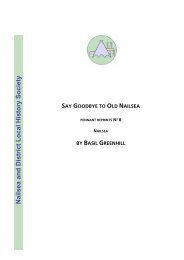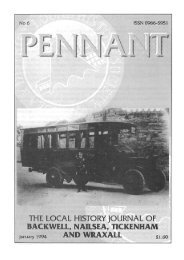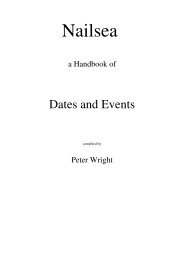No 2 - Nailsea and District Local History Society
No 2 - Nailsea and District Local History Society
No 2 - Nailsea and District Local History Society
Create successful ePaper yourself
Turn your PDF publications into a flip-book with our unique Google optimized e-Paper software.
died by July 1791 when his widow received one guinea from alegacy of £5-10-6d left to her by a benefactor. Following ThomasButt, the Overseer's accounts record payments in 1794 <strong>and</strong> 1796to George Burnett of "18s for schooling".These early references to a school indicate that it was a smallestablishment typical of parish schools of that period, funded outof the rates <strong>and</strong> by charitable bequests. Education was of themost basic kind, as is made clear by the will of Charles Wilcox ofWest Town. In 1783 he left 50 in trust. Half the interest was toprovide bread for the poor of West Town to be distributed twiceyearly in February <strong>and</strong> December, but the other half was for "theeducation the English language" of poor children of West Town.In 1809 the capital sum was used to buy a piece of l<strong>and</strong> onBackwell Common which was then let at 50s a year, but againhalf of that income was put towards the cost of educating thepoor children from West Town. In 1815 Hannah Merrick received£1-5-0 for "1 year's schooling for 3 children", <strong>and</strong> a similaramount went to Ann Moore in 1816, "left by the late Mr Wilcoxof West Town". Those children attended the school at Farleigh.Two years later, in a report to The Select Committee on theEducation of the Poor, the Curate stated that in Backwell, with apopulation of 593, there was one small school taught by onewoman, containing 7 or 8 children. He added that "the poorhave not sufficient means of educating their children <strong>and</strong> wouldbe glad to obtain them".The growing national interest in education had led to theestablishment of two rival religious societies for promoting theeducation of the poor. The National <strong>Society</strong>, founded in 1811,advocated education in the principles of the established church,while The British <strong>and</strong> Foreign School <strong>Society</strong> (1814) promotedbible reading but undenominational teaching. Both Societiesused the monitorial system of teaching, developed by AndrewBell <strong>and</strong> Joseph Lancaster, whereby the older pupils taught the4


